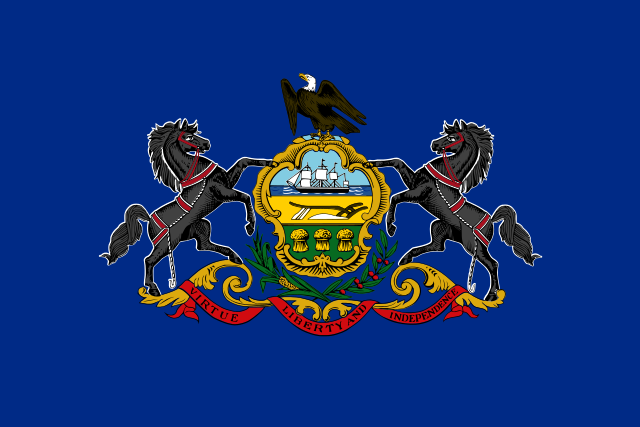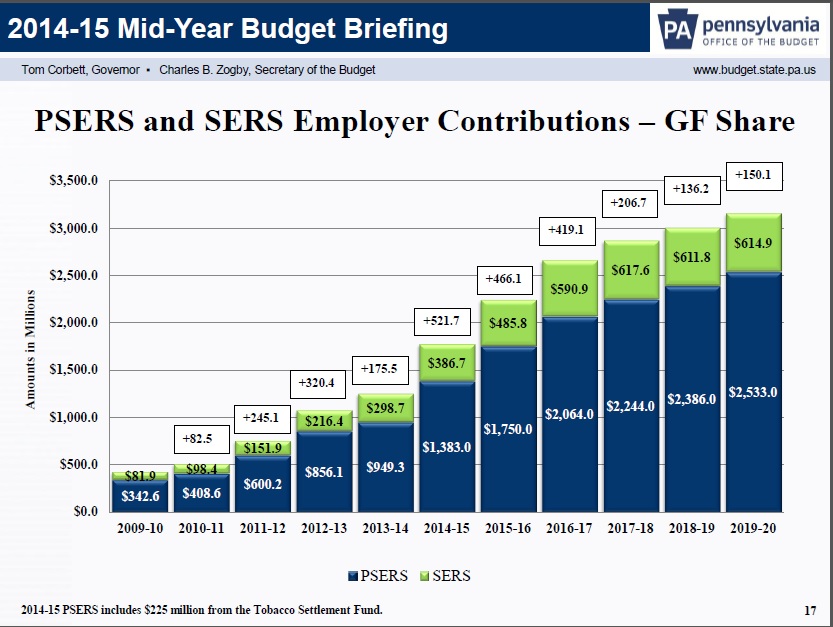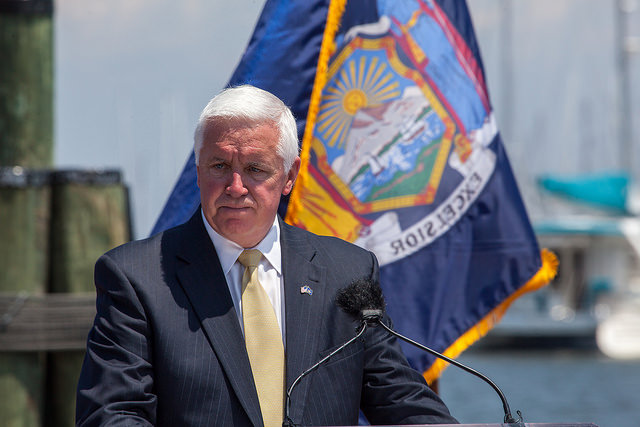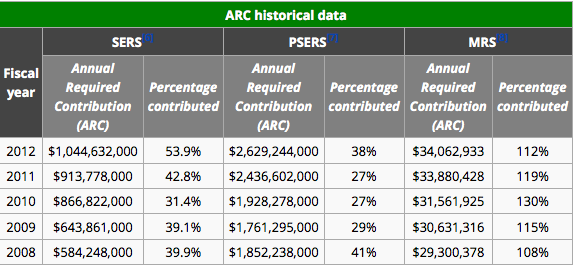Pennsylvania’s outgoing governor, Tom Corbett, made reforming the state’s pension system his top priority over the last year. But his plan – which would shift new hires into a “hybrid” plan with characteristics of a 401(k) – failed to enthuse most legislators.
Still, two pension bills are still sitting in the legislature, and they are likely to be brought up again in 2015. The first bill mirrors Corbett’s “hybrid idea”. As described by the Scranton Times-Tribune:
The hybrid plan, proposed by state Rep. Seth Grove, R-York, would maintain defined benefit plans for current employees and retirees and shift new hires into a plan that has features similar to 401(k) plans.
The proposal has several provisions to help municipalities reduce pension deficits, including guaranteeing a rate of investment return and allowing any excess earnings to be used to reduce the pension plan’s unfunded liabilities, said Rep. Grove.
[…]
The bill was introduced in the last legislative session, but never made it out of the Local Government Committee. Rep. Grove said he plans to reintroduce the bill in the next session.
The other bill takes a different approach. From the Times-Tribune:
The other bill focuses on reforming Act 111, which requires binding arbitration when a municipality is unable to reach a contract with its police or firefighters unions.
State Rep. Rob Kauffman, R-Chambersburg, introduced a bill last year that would, among other things, require an arbitrator to consider a municipality’s ability to pay when issuing an award. It did not make it out of committee, but is expected to be reintroduced this session, said Rick Schuettler, executive director of the Pennsylvania Municipal League, which supports the legislation.
Municipal officials statewide have long-complained that binding arbitration is stacked in favor of the unions, with arbitrators often issuing excessive awards.
How likely are these bills to gain any traction? The second one has the better chance, because incoming Gov. Tom Wolf is opposed to changing the pension system to a “hybrid” plan.




